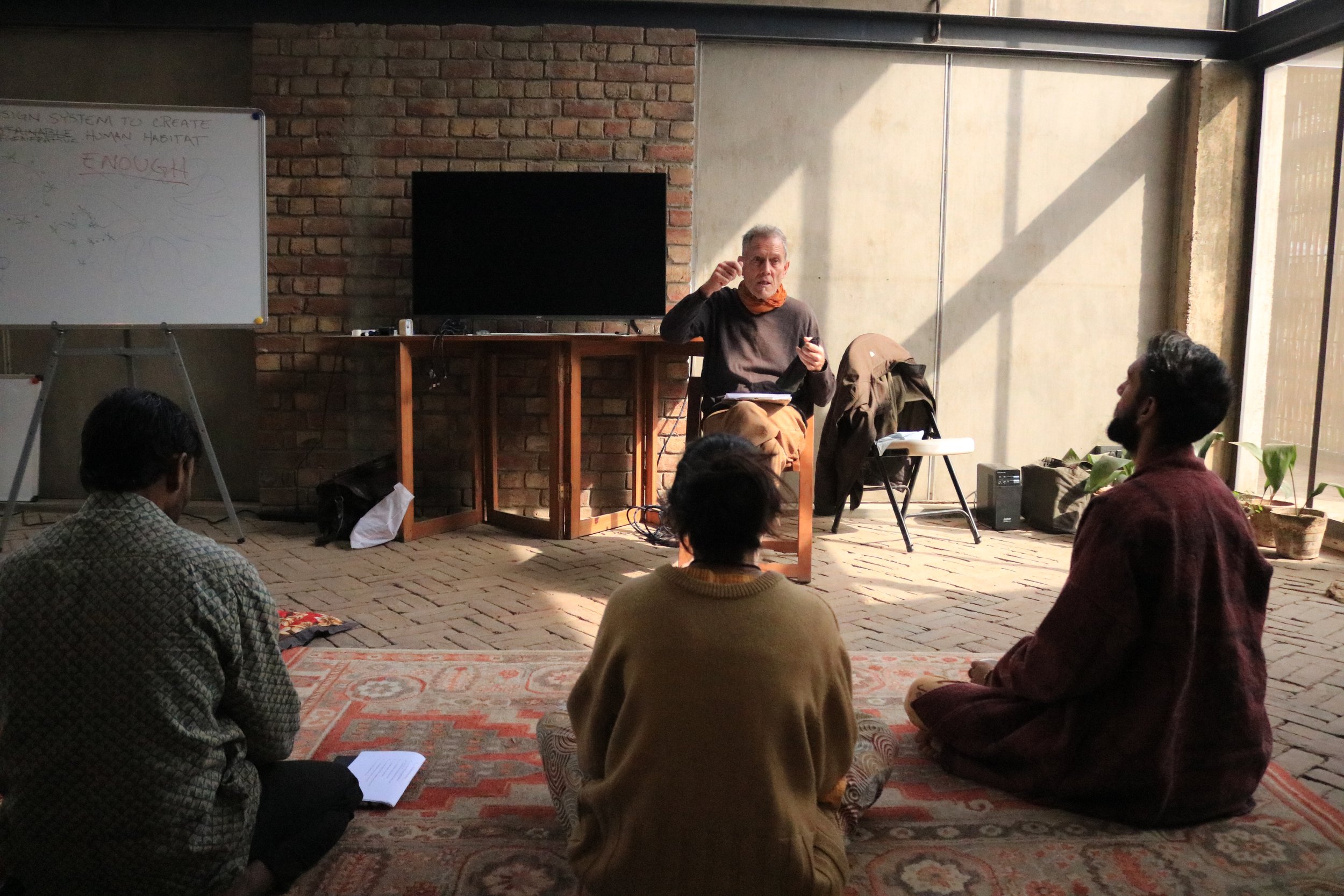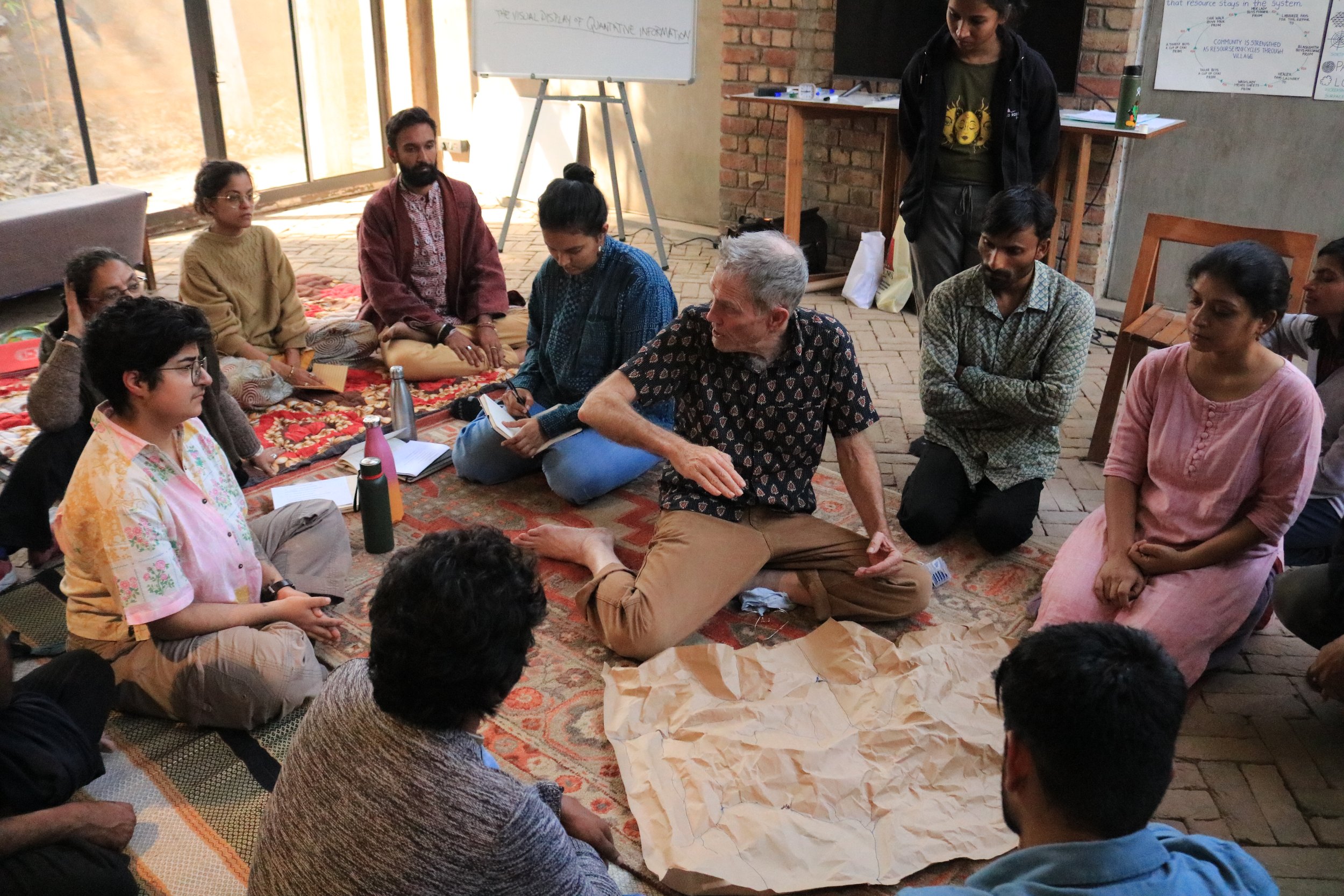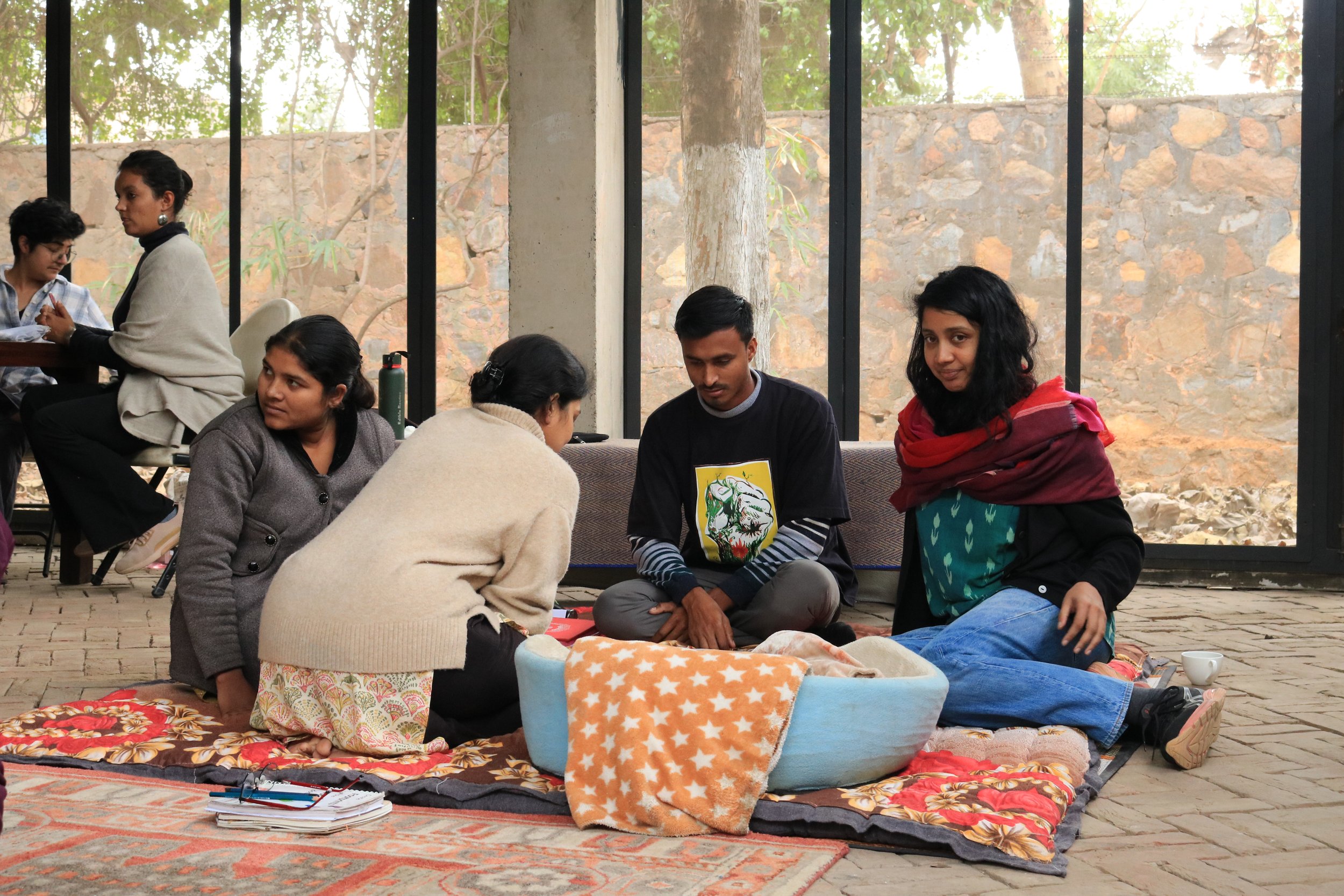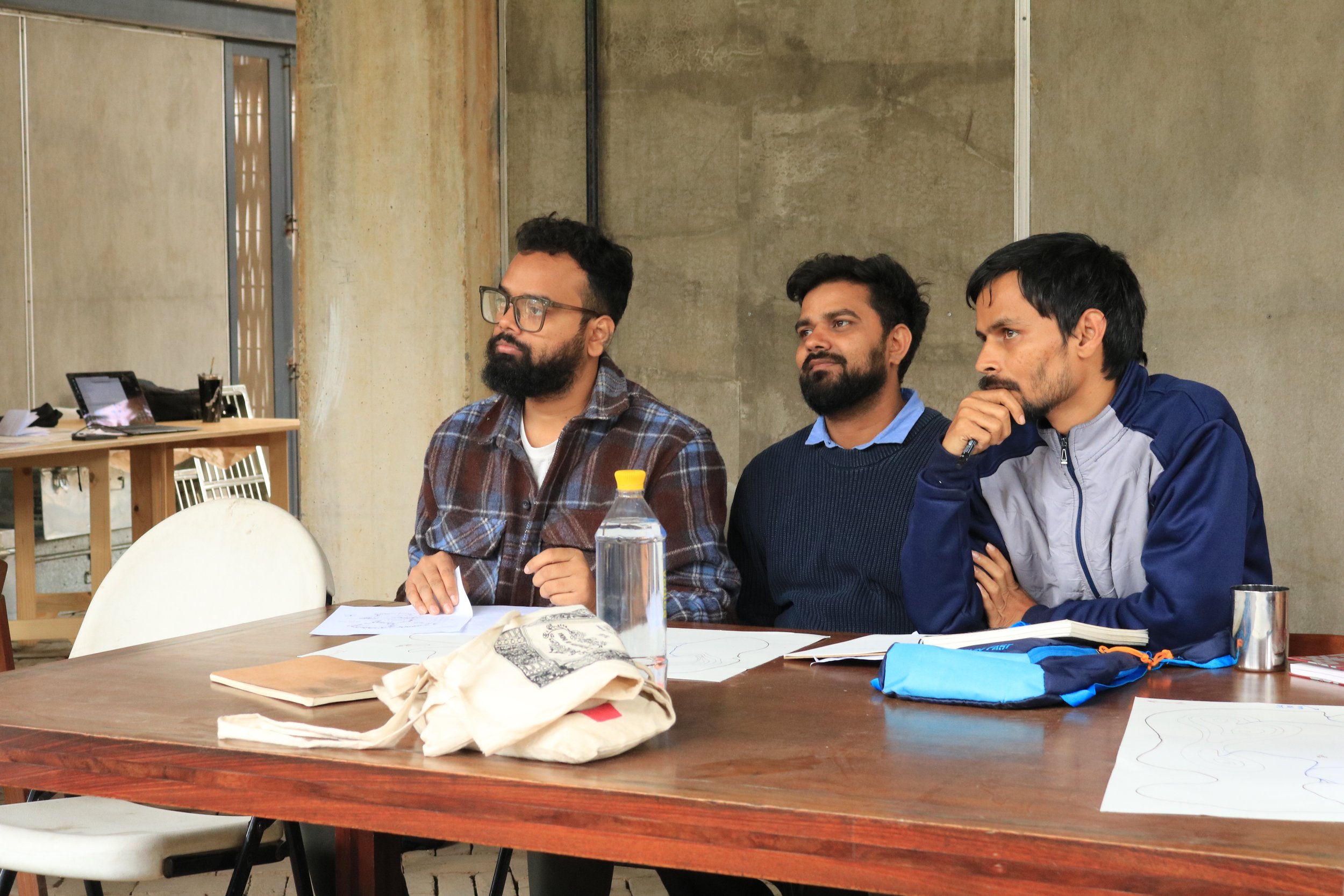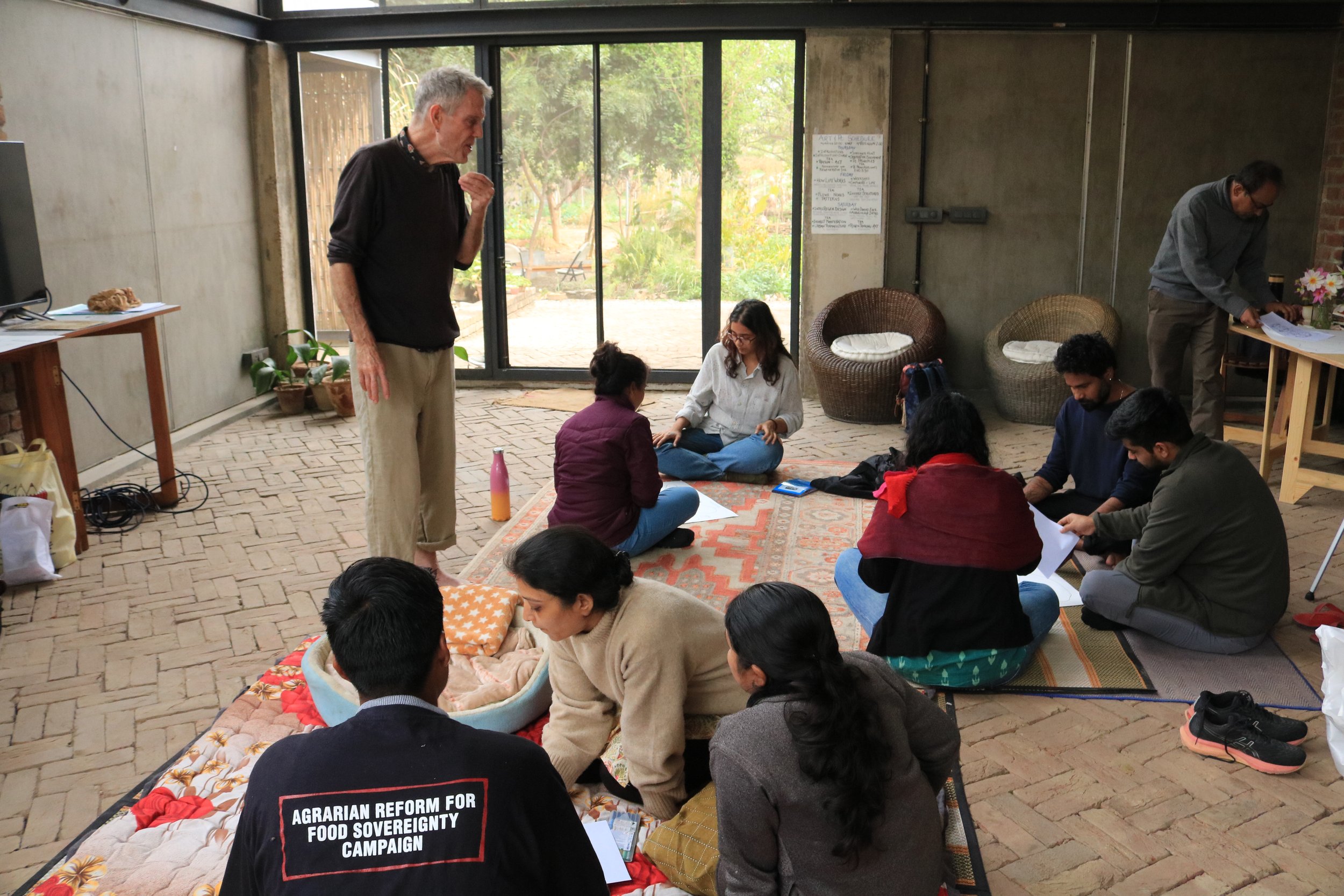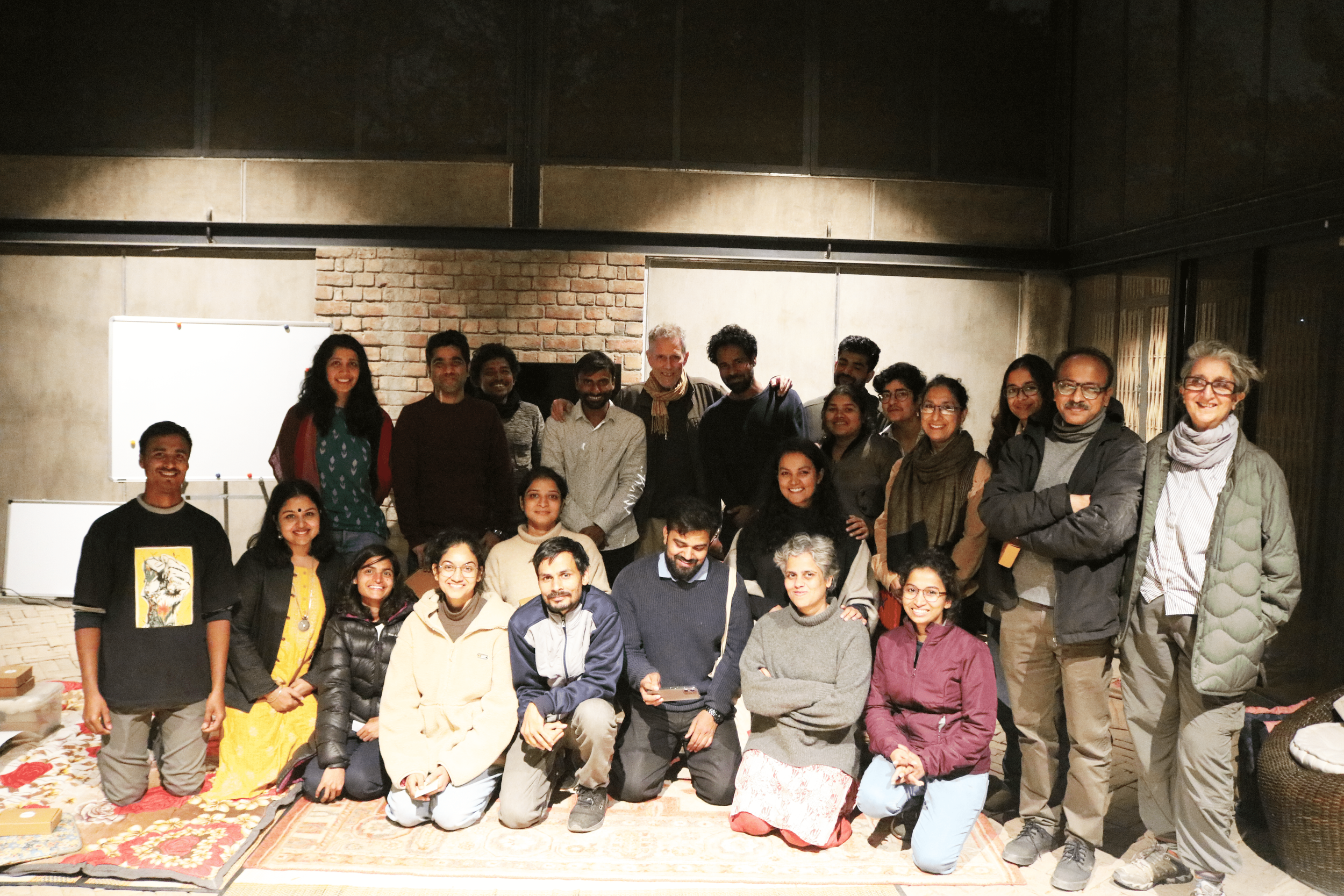Art and Permaculture | A course with Rico Zook
in conjunction with AgriForum
Art and Permaculture
Regenerative Thinking as an Artistic Perspective
A 3 day course with Rico Zook
in conjunction with AgriForum
At Farm8, Ayanagar, New Delhi
29 February - 2 March 2024
Supported by Shared Ecologies Program, Shyama Foundation
We invited applications for a course on art, permaculture and regenerative thinking, led by renowned permaculture designer, consultant and instructor Rico Zook. This 3-day course was held on-site at Farm8 in Ayanagar, New Delhi and formed part of our ongoing platform, AgriForum. Begun in 2021, the AgriForum is envisioned as a space for presenting and gathering contemporary enquiries into the agrarian. A forum for artists working with the agrarian across media, form and function, it seeks to encourage processes of sharing and accumulation, drawing into its fray various vocabularies at the intersections of artistic practice and agriculture.
This course drew on Rico’s years of experience with permaculture and regenerative systems that facilitate a drastic and much needed shift in how we think about resources, relationships and relative balance in our cultural and biological survival. It opened intersections between permaculture and artistic practice, looking closely at modern agricultural methods and the adverse effects of the same on natural environments, modes of consumption and ways of living.
A multifunctional space, Farm8 serves as an urban farm, a kitchen and a small space for discussion and learning, and this program with Rico will work to activate these elements through the framework of the AgriForum and its assimilations. Rico is interested in closely exploring the possibilities of regenerative-ness, of interacting with and creating regenerative tendencies in work—be it art, agriculture, business or any other experimental pursuit. Foregrounding the ecological question through such practices and enquiries, this intensive classroom was a way to unravel and learn from the foundations of urban permaculture, particularly its holistic approach to growing and gathering.
With this in mind, the course introduced the basics of permaculture as a practice and as a way of life, while speaking to the centrality of the agrarian context as it pertains to India, its biodiversity, food and farming systems as well as the present (and global) moment of grappling with the severities of extractive policies. Through these routes, it addressed how regenerative design can be approached and implemented while in conversation with artistic practice, and how permaculture emerges as an understanding of life, of how we relate to our contexts of dwelling and living, and the manner in which we subsist in our shared environments.
About the resource person:
Rico Zook is a Permaculture designer, consultant and instructor. He works with private individuals, farmers, villagers and local organizations to create environmentally and culturally appropriate life systems in northern New Mexico, India, Cambodia, and places in between. Mr. Zook also works to assist local and indigenous cultures to preserve traditional knowledge and technologies while adapting to and becoming active members of our rapidly globalizing world. Currently (2015) his year is divided into 5 months in India, 3 months in Southeast Asia, 3 months at his farm in Hawaii, and 1 month in different places each year. In India, many of the projects he is involved in are based out of Darjeeling, West Bengal, which is his home for part of the year. Past projects include a bio-conservation project funded by the Critical Ecosystem Protection Fund (CEPF). Utilizing a participatory model, DLR Prerna (a local NGO) and Mr. Zook trained five forest villages in permaculture and worked with them to internalize and cycle their resource needs, thus minimizing their impacts on the critical bio-corridor in which the villages are located. Another involved a team headed by Anugyalaya (another local NGO), and included Prerna, the Catholic Diocese and Mr. Zook, designing a 16-acre Permaculture demonstration and education site. This process and the design implementation was a hands-on experience for several local, long-term students of Mr. Zook. In south India Mr. Zook has worked with several private clients whose projects include a university, a healing centre, a children's camp, and assisting local farmers and tribals convert to organic agriculture. Past projects have included wetlands construction for wildlife, a children's school, and many private consultations on farms and homesteads.
Access more details about his work here.
About Farm8:
Farm8 is a ‘biodiversity halfway-house’ in Ayanagar, the last urban village of South Delhi, located on the Mehrauli-Gurgaon road. It is nurtured by artist Rashmi Kaleka, a certified permaculturist, exploring what she terms ‘Environmental Emergency’ – loosely meaning habitats and survival, on Farm 8 amidst the gradual depletion of ground water in the area. Farm8’s mission is to be an environment that has functional elements such as perennial food systems, animal grazing and demonstration of sustainable living. It strives to be a productive system that will provide a model for local people to replicate in their own residences, land and farms.
